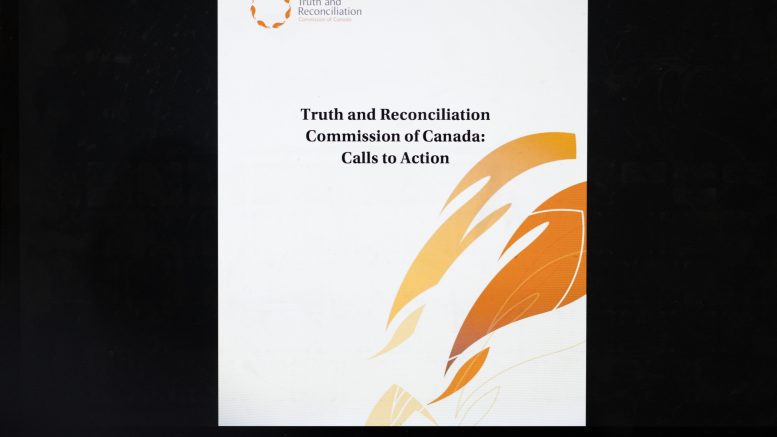An annual status update published by the Yellowhead Institute found that zero of the Truth and Reconciliation Commission of Canada’s (TRC) calls to action were completed in 2023.
Of the 94 calls to action, the institute found that 81 remain incomplete since their announcement in 2015.
The Yellowhead Institute, a research centre located in Toronto under Indigenous leadership, made the decision to end its annual Calls to Action Accountability report to the slow completion of actions. The final remark in the 2023 publication stated: “There are limits to how many times you can write a report about how Canada, once again, has failed to make any meaningful progress.”
The calls to action are part of the TRC’s final report, which was created based on the testimonies of residential school survivors, and acknowledges the historic and ongoing harms Canada has inflicted on Indigenous Peoples.
This past year was not the first in which no calls to action were met. In 2020, the Yellowhead Institute also recorded zero calls to action completed.
Regarding the Canadian government’s failure to meet calls to action this past year, Catherine Cook, vice-president Indigenous of the University of Manitoba, said that “it’s not an Indigenous problem, it’s a Canadian problem.”
Raymond Frogner, senior director of research and head of archives for the National Centre of Truth and Reconciliation (NCTR), explained that only measuring the completion of the calls to action does not account for efforts that remain ongoing.
Frogner said that calls to action 71 through 76, under the heading “missing children and burial information,” are in the process of being addressed.
“We recognize, and so does Ottawa in their funding for the project, that this will take several years,” Frogner said.
He said the basis for reconciliation is “respectful relationships that occur over time,” and that completion of the ongoing efforts “will not happen in a year or two.”
The calls to action apply to various levels of Canadian society, including education.
Cook said change that will aid in reconciliation within the education system needs to be implemented at every level.
At the U of M, those changes are beginning to take place. Call to Action 24 calls on medical and nursing schools to include a mandatory class addressing Indigenous health issues, and Cook reported that the Max Rady college of medicine recently passed a policy requiring applicants to have taken a basic course in Indigenous history.
She said she hopes to one day see every faculty require a class providing knowledge on Indigenous issues.
Cook offered advice on how people can implement reconciliation efforts in their day-to-day lives. She says people should acknowledge their inherent biases and be “open and interested in people of different faiths, different past experiences, different cultures.”
“Your life can be so rich if you’re open to learning about others,” she said.



